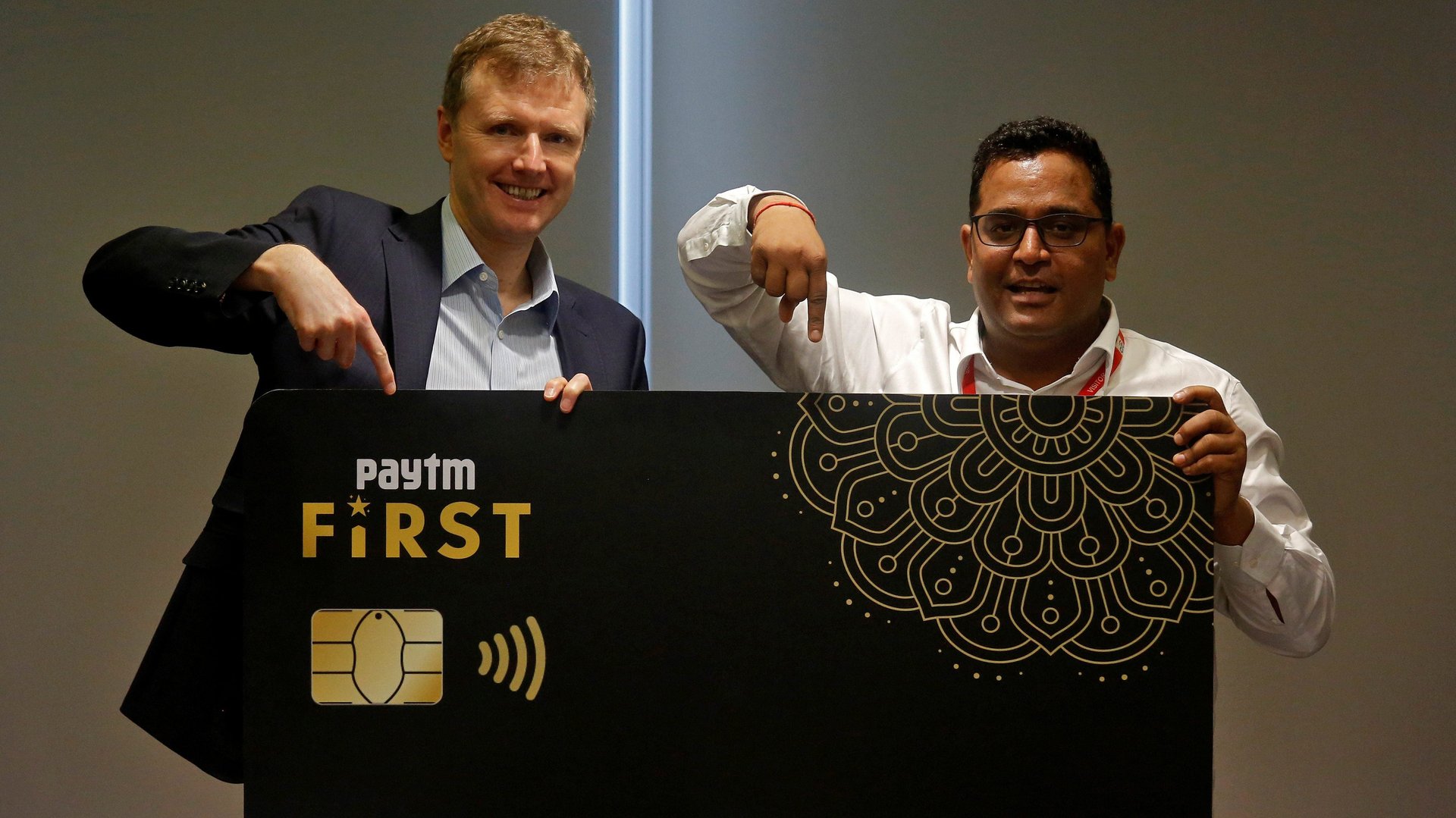Paytm Payments Bank is in trouble for flouting India’s data-storage rules
Paytm Payments Bank, which processes digital transactions for India’s most valued unicorn Paytm, is facing a regulatory roadblock due to its alleged violation of India’s data storage rules.


Paytm Payments Bank, which processes digital transactions for India’s most valued unicorn Paytm, is facing a regulatory roadblock due to its alleged violation of India’s data storage rules.
On March 11, the Reserve Bank of India (RBI) imposed restrictions on the payments bank against acquiring new users. This was based on “certain material supervisory concerns” (pdf) in the bank.
The company’s servers were sharing information with China-based entities that indirectly own a stake in the bank, Bloomberg reported yesterday (March 14), citing sources. Paytm Payments Bank had also onboarded several customers without adequate know-your-customer (KYC) documentation, which could be a breeding ground for money laundering, the report said.
Data localisation has become a significant policy issue in India over the past decade. The RBI has even penalised foreign card-payment network companies such as Visa, Mastercard, and American Express for not complying with the country’s data localisation norms.
However, India’s changing technology landscape has compelled its government to consider scrapping the current version of the personal data protection bill 2019 and introduce a fresh privacy bill.
What did the Paytm Payments Bank say?
One97 Communications, Paytm’s parent company, has said that it is taking steps to comply with the RBI directions.
New users can still sign up for the Paytm app and transact by creating UPI handles and linking them to their bank accounts or third-party payment instruments.
“Paytm believes the measures imposed upon PPBL [Paytm Payments Bank] will not materially impact Paytm’s overall business,” the company said in a filing to the stock market regulator.
For Paytm, backed by several marquee investors, including Masayoshi Son’s Softbank Group, Warren Buffett’s Berkshire Hathaway, and Jack Ma’s Ant Group, it is a major setback given that the company is already struggling to sustain revenue streams and generate profits.
Even though its payments bank is not public, it is the backbone of several Paytm offerings, including insurance, digital payments, and lending.
Paytm is India’s leading digital payments service provider and the first to get listed on bourses in 2021. Its payments bank, a joint venture between Paytm and its founder Vijay Shekhar Sharma, has over 300 million wallets and 60 million bank accounts, according to its website.
“India’s most sincere bank,” as the website refers to itself, has over 100 million KYC-compliant customers and has been adding 400,000 new users every month. However, the RBI’s move may jeopardise its ambition to become a small finance bank.